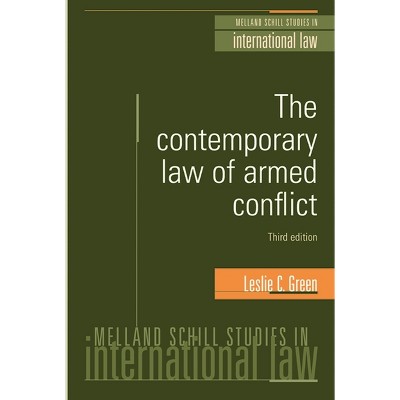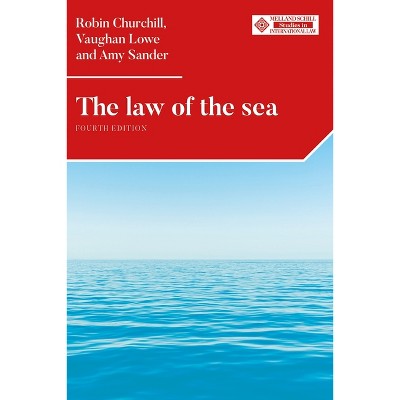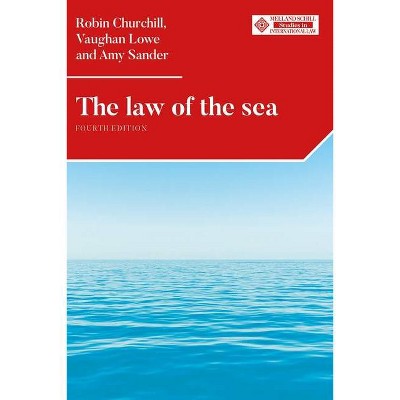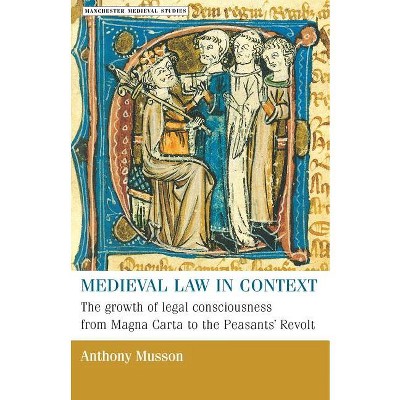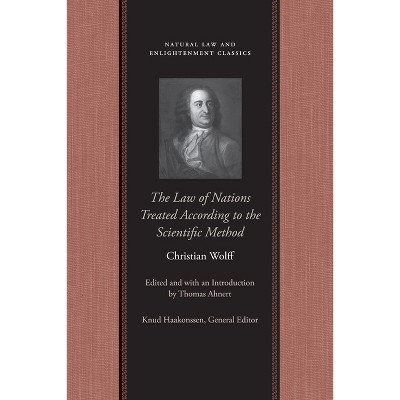Sovereignty Disputes and the United Nations Convention on the Law of the Sea - (Melland Schill Studies in International Law) by Thomas D Grant

About this item
Highlights
- Because maritime questions are often admixed with territorial sovereignty questions, parties sometimes seek to settle them together.
- About the Author: Thomas D. Grant is a Fellow of the Lauterpacht Centre for International Law at the University of Cambridge.
- 432 Pages
- Freedom + Security / Law Enforcement, International
- Series Name: Melland Schill Studies in International Law
Description
About the Book
Adjudicators have struggled, not all successfully, with one of the persistent puzzles that the UN Convention on the Law of the Sea presents -- the limits to dispute settlement jurisdiction in respect of sovereignty disputes. This book argues for an approach that better accords than decided cases so far with the text, judicial method, and public order.Book Synopsis
Because maritime questions are often admixed with territorial sovereignty questions, parties sometimes seek to settle them together. Jurisdiction under the United Nations Convention on the Law of the Sea--UNCLOS--according to the received view does not encompass disputes concerning territorial sovereignty. In this book, international law scholar and practitioner Thomas D. Grant argues that the received view overstates the exclusion of sovereignty disputes. In Coastal State Rights, UNCLOS Annex VII arbitrators overstated the scope of the term 'sovereignty dispute' as well, an error of definition compounded when they ignored evidence probative as to whether a sovereignty dispute exists. Examining UNCLOS, its drafting history, and decades of decided cases, Sovereignty Disputes and the United Nations Convention on the Law of the Sea relates an important problem of international dispute settlement to the public order of which UNCLOS forms part.From the Back Cover
Critically examining the intersection of territorial sovereignty and maritime disputes under the United Nations Convention on the Law of the Sea, this book questions the prevailing view that adjudicators applying UNCLOS must refuse to exercise jurisdiction over issues of sovereignty.
The law of the sea embraces the principle that a state does not change its boundaries with another state by force. This principle is indispensable to modern public order, and it limits the meaning of the term 'sovereignty dispute' for purposes of the law of the sea. This book argues that when parties assert that a sovereignty dispute prevents adjudication of a maritime dispute, adjudicators are competent to determine whether a sovereignty dispute - in fact and in law-- exists. Through a detailed analysis of key cases, including those concerning the Chagos Archipelago, the South China Sea, and Russia's annexation of Crimea, the book argues that adjudicators should apply ordinary scrutiny to evidence concerning territorial claims rooted in the use of force but that an exaggerated caution about the supposed limits of their authority has led them in key cases to fail in that basic part of the adjudicator's function. Examining and critiquing the February 2020 Annex VII award in Coastal State Rights, the book suggests that adjudicators would better implement the terms of UNCLOS and serve the legal system at large if they considered decisions of other international organs when these reflect consensus as to findings of fact and that they also should adhere to the standard methods of fact-finding familiar to parties and adjudicators in most legal systems. Timely and thought-provoking, this book invites a fresh look at an enduring problem made all the more urgent by the many uncertainties in present-day geopolitics.Review Quotes
'This book is a masterful argument on the current state of the law of the sea in its geopolitical context from a deeply and widely experienced practitioner and scholar. It goes to the heart of the continuing significance of the law of the sea in maintaining global order, addressing what is at stake for global order in current law of the sea jurisprudence.'
Professor Cameron Moore, School of Law, University of New England in Armidale, NSW
About the Author
Thomas D. Grant is a Fellow of the Lauterpacht Centre for International Law at the University of Cambridge.Shipping details
Return details
Trending Book Pre-Orders






